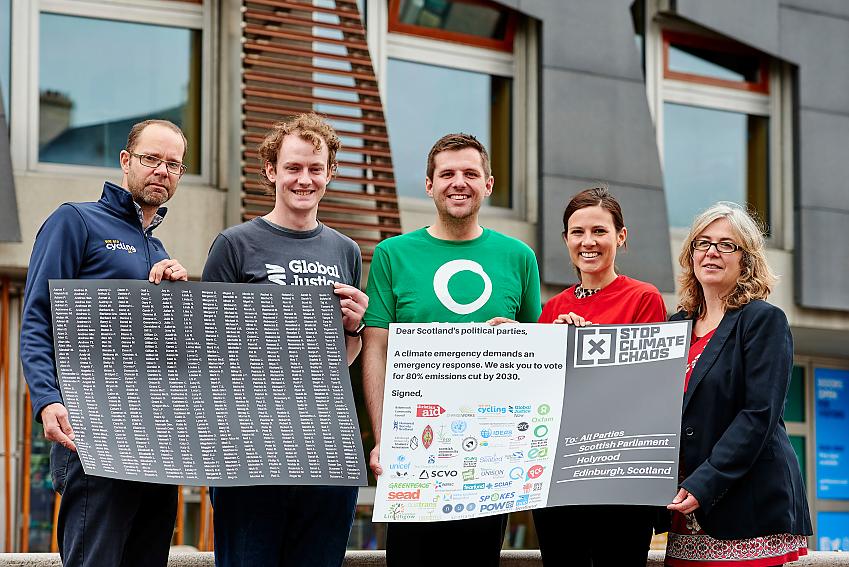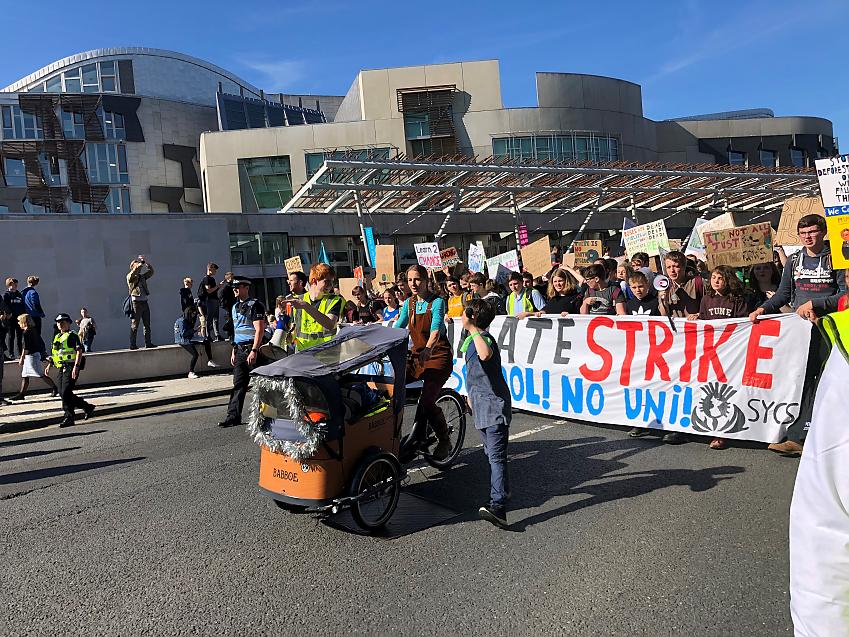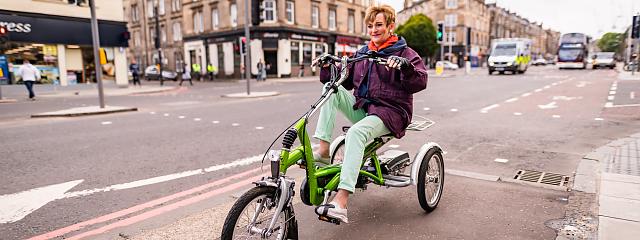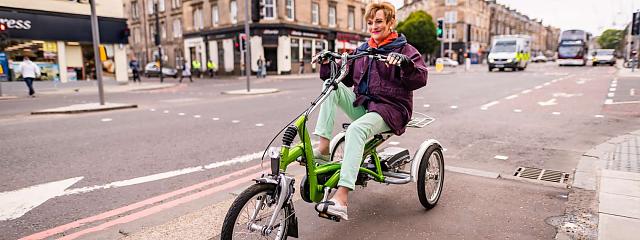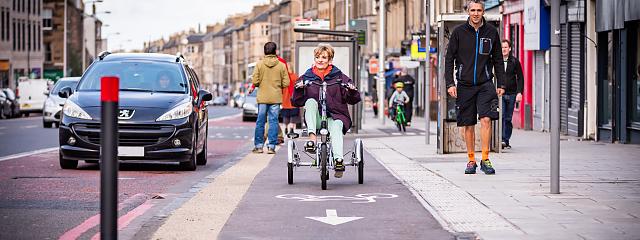
Scotland’s new climate law makes our work more important than ever
Scotland’s new climate law makes our work more important than ever
Wednesday was a huge day for Scotland and our future impact on the planet. The Holyrood Parliament passed a new climate law that cuts our greenhouse gas emissions to zero by 2045, with steep cuts on the way.
Right up to the last minute there was negotiation between the parties but finally MSPs agreed that by the year 2030 we must cut our emissions by 75% (from 1990 levels).
Getting the 2030 target right has been the priority for us and our partners in the Stop Climate Chaos Coalition (SCCS). I was outside Parliament with SCCS just last week helping to hand in a petition asking for the 2030 target to be strengthened.
The 75% target isn’t the 80% we had wanted, but is much better than what was on the table a few months ago.
Since 1990 we’ve reduced our emissions by about half, so the new 2030 target reflects the urgency needed to boost climate action immediately and over the next 10 years. That’s what the 40,000 children (and adults) at climate strikes across Scotland last week were calling for.
“Momentous” is how Scottish Environment Secretary Roseanna Cunningham described the decision in Parliament; but she also made clear it’s “only the beginning of the task”.
Tom Ballantine, chair of SCCS, said: “Today’s new climate law is not the end; it’s what comes next that will show whether Scotland is really serious about tackling this crisis. Urgent action must follow, with these targets driving rapid and immediate action to move away from fossil fuels in our homes, transport and energy.”
The work to decarbonise transport is massive and getting more people cycling will be absolutely crucial. The solution can’t just be a move from fossil fuel cars to electric ones – that won’t solve road congestion or the health crisis. The future must be less car dependency and fewer cars, which means more space for safe cycling and walking, as well as more and better public transport.
Our work in Scotland just got even more important. We need to be at the forefront of action with our SCCS and active travel partners to push for the policies and action needed and help get the public behind transformational change.
With the passing of the new climate legislation, the Government’s new National Transport Strategy (NTS2) also takes on an added significance. It will set Government’s vision, direction and policies for transport into the future.
The NTS2 is open for consultation until 23 October and we want you (as an individual or member of a group in Scotland) to have your say. To help, we’ve created a guide to responding with suggested answers to some of the questions. The important thing is to say what you feel needs to change in your area to make cycling safer and easier for everyone.
The new climate law means that how we live our everyday lives and how we travel around in 2030, 2040 and 2050 will be very different to the way we do so now. We need transformational change in transport – let’s start now.
How you can make a difference
The Scottish Government’s new National Transport Strategy is open for consultation until 23 October and we want you (as an individual or member of a group in Scotland) to have your say. To help, we’ve created a guide to responding with suggested answers to some of the questions.
The important thing is to say what you feel needs to change in your area to make cycling safer and easier for everyone.
The new climate law means that how we live our everyday lives and how we travel around in 2030, 2040 and 2050 will be very different to the way we do so now. We need transformational change in transport – let’s start now.






